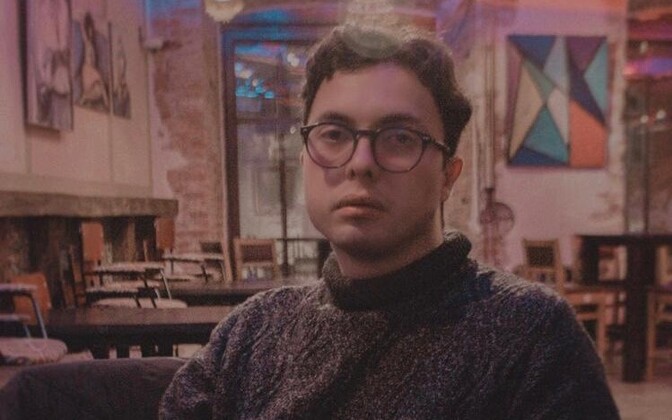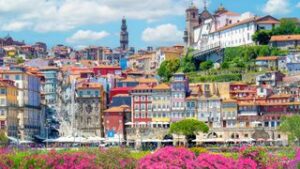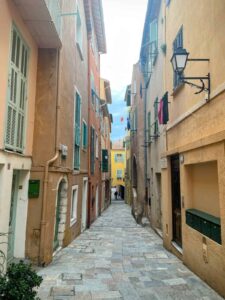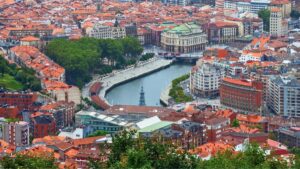Tallinn City Center Expat Chat: Johnny from Colombia
5 min readThe second interview in our collaboration with “Tallinn City Center New Arrivals Project” is with Johnny from Colombia who is never one to back down from a challenge.
This interview was carried out by Svetlana Štšur project manager of “Tallinn City Center New Arrivals Project” which is run by Tallinn City Center (Kesklinn) Government with support from the European Social Fund.
Every month, Štšur will interview an expat living in Tallinn and discuss why they moved to Estonia, what they like about the capital and their recommendations for other newcomers.
The interview was first published in the City Center district’s newspaper “Kesklinna Sõnumid”.
Johnny – never one to back down from a challenge
Johnny Calde is from Colombia, and despite being of Italian origin, he’s a very punctual person who’s never late (going against the stereotype, right?). He’s twice been nominated for Volunteer of the Year. He started his journey in Estonia as a teacher, but is now involved in the field of design. He’s not afraid of challenges because he enjoys learning new things as he goes.
Johnny came to Estonia as part of the Erasmus project in June 2016 and fell in love with the country. When the project ended, he decided to stay and applied to participate in a volunteer project. As part of it, he spent a year working in a kindergarten in the city centre before taking up a position at a school he was invited to by his mentor. He was amazed that within three weeks of him arriving in Estonia he received an invitation to a meeting at which Prime Minister Jüri Ratas was also in attendance. He says that something like this would not be possible in Italy – to be so close to the authorities.
“I’ve lived in a lot of countries, but when I arrived in Estonia I felt at home, even though I experienced something like culture shock at first,” he said. “I really like the culture here. I fell in love with Tallinn at first sight – it’s such a beautiful city! The size of the place is perfect for me: Not too big and not too small.”
Johnny says that it is generally quite easy to meet different types of people in Tallinn. “The first people I met here were Estonians,” he says. “Since then, most of them have gone to live in Finland. We used to go out and party together, and about four weeks after I met them, I invited them to my place for dinner (pasta, of course!). But they all said, ‘Oh, right, maybe some other time.’ I went out with them that same evening and at three in the morning we decided to go to the sauna. We were all butt-naked! It took another two weeks after that for my Estonian friends to agree to have dinner at my place. I remember thinking: Is having dinner a bigger deal to Estonians than getting naked together in the sauna?!”

While volunteering, Johnny lived in the Kärber area of Lasnamäe, where older Russian women (a.k.a. babushkas) liked to talk to him, despite him not speaking any Russian. “They’d rattle off all these words, blah-blah-blah to my ears, and I’d answer back with ‘da, da, da’!” he laughs.
“I lived in Lasnamäe for a year and never once had a bad experience with the locals. People were curious and asked me questions, especially Ukrainians – don’t ask me why. They used to ask me at my corner shop where I came from as well, and complimented me. The same can’t really be said about the city centre. I remember that when someone in our apartment building baked a cake, they’d leave the leftovers on a windowsill in the stairwell. My neighbours left other things in the stairwell as well, like lamps and shoes. There was a real sense of community spirit. In autumn, Estonians also typically leave apples in front of the building for anyone to take.”
Johnny is currently working towards a degree in anthropology at Tallinn University. He says that studying there can be a nightmare if you don’t know how to discipline or organise yourself. In Italy, for example, students are usually provided with a specific syllabus with designated subjects and have to take an exam in order to pass. And that’s it. “At Tallinn University you can basically put together your own syllabus, and there’s also quite a lot of work you have to do at home and other interactive stuff,” he explains. “I like it like that, but I know a lot of my classmates have struggled with it. One of my friends even dropped out because of it.”
Johnny says he wants to become fluent in Estonian. “In every country I’ve lived in, I was fluent in the local language,” he reveals. “I think it’s the best way of getting to know the local culture. If you can speak the language, you’ll understand the jokes much better. Language also affects personality: when I speak Spanish, I’m funnier; when I speak Italian, I’m more serious. But Estonian really is difficult!” he laughs. “My original goal was to get to the B1 level, since that would mean better job opportunities in education, but I don’t want to be a teacher anymore. I don’t use Estonian much in my current job, so if I really want to learn how to speak it, I’ll have to do it on my own.”
Johnny’s tips on surviving in Estonia as a foreigner
– Celebrate local traditions, such as Midsummer – with Estonians, of course!
– Volunteer at cultural events, including festivals like PÖFF (which he’s been volunteering at for a number of years now).
– Explore the work of Estonian artists and designers – for example, Helene Vetik, Tauri Västrik, Diana Johnson and Stas Shanin.
—
Follow ERR News on Facebook and Twitter and never miss an update!
Discover more from Slow Travel News
Subscribe to get the latest posts sent to your email.



